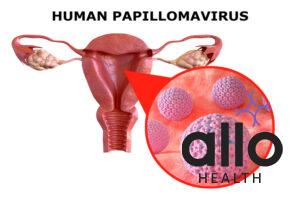Does HPV Cause Pain in the Lower Abdomen?

Allo Health is dedicated to personalized well-being, offering support and trusted information tailored to individual health goals. The platform emphasizes human-generated content, led by a distinguished medical team of experts, including physicians and sexual health specialists. Their commitment to credibility involves rigorous fact-checking, authoritative research, and continuous updates to ensure accurate, up-to-date information. Allo Health's unique approach goes beyond conventional platforms, providing expert-led insights and a continuous commitment to excellence, with user feedback playing a crucial role in shaping the platform's authoritative voice.

Dr. Raj. R holds an undergraduate medical degree from the Philippines, and has a bachelors background in Psychology. His experience working in the field of urology further brought his interest forward in working towards his passion of understanding the science of attraction, intimacy, sex and relationships. A key motto he practices by remains unprejudiced and non-judgemental care.
Why This Was Upated?
Our experts continually monitor the health and wellness space, and we update our articles when new information became available.
Updated on 12 April, 2024
- Article was updated as part of our commitment to diversity, equity, and inclusion.

"The following blog article provides general information and insights on various topics. However, it is important to note that the information presented is not intended as professional advice in any specific field or area. The content of this blog is for general educational and informational purposes only.
Book consultation
The content should not be interpreted as endorsement, recommendation, or guarantee of any product, service, or information mentioned. Readers are solely responsible for the decisions and actions they take based on the information provided in this blog. It is essential to exercise individual judgment, critical thinking, and personal responsibility when applying or implementing any information or suggestions discussed in the blog."
If you’re experiencing pain in your lower abdomen, one possible cause may be a human papillomavirus (HPV) infection. HPV is a sexually transmitted infection that affects both men and women. In this article, we’ll explore does HPV cause pain in lower abdomen, symptoms of HPV and the available treatment options for this condition.
What is HPV?

HPV is a viral infection transmitted through skin-to-skin contact during sexual activity. The virus affects the skin and mucous membranes of the body, including the genitals, anus, mouth, and throat. HPV infections are common and often go unnoticed, as many people do not experience any symptoms.
Some strains of HPV can cause genital warts, which are small, flesh-coloured bumps that appear on or around the genitals or anus. These warts can be itchy or painful and may cause discomfort during sexual activity.
Certain types of HPV can lead to the development of cancer, including cervical, anal, and throat cancer. It is important to get regular screenings for HPV and to practice safe sex to reduce the risk of transmission.
Vaccines are also available to protect against certain strains of HPV. If you notice any unusual symptoms or changes in your body, such as genital warts or abnormal bleeding, it is important to see a healthcare provider for evaluation and treatment.
Common Symptoms of HPV Infection
The common symptoms of HPV infection are:
- Genital Warts: Genital warts are one of the primary symptoms of genital HPV infections. These small growths can appear on the genitals, anus, or surrounding areas. They may be raised, flat, or cauliflower-like in appearance.
- Itching and Burning: Some individuals with HPV infections may experience itching and burning sensations around the genital and anal areas. These discomforts can be mild to moderate and may come and go.
- Discomfort During Sexual Activity: HPV infections can lead to discomfort or pain during sexual intercourse. This can be attributed to genital warts or other changes in the affected tissues.
- Unusual Changes in Skin: HPV-related cancers, such as cervical, anal, or throat cancer, may cause unusual changes in the skin or mucous membranes. These changes might manifest as sores, lesions, or lumps that don’t heal as expected.
- Pain or Bleeding: Some individuals with advanced HPV-related cancer, particularly cervical or anal cancer, might experience pain or bleeding, especially during sexual activity or bowel movements.
Does HPV Cause Pain in Lower Abdomen?
Although HPV infections are typically associated with genital symptoms, they can also cause pain and discomfort in other areas of the body, including the lower abdomen. In women, this pain may be felt in the pelvic area and may be accompanied by vaginal discharge or bleeding. Men may experience pain in their testicles or prostate gland.
It is important to note that not all cases of abdominal pain are caused by HPV. Other conditions, such as urinary tract infections or gastrointestinal issues, can also cause similar symptoms. Therefore, it is important to consult a healthcare provider for an accurate diagnosis.
The Link Between HPV and Lower Abdomen Pain
While the exact cause of lower abdomen pain in HPV-infected individuals is not well understood, it is thought to be related to the body’s immune response to the virus. In some cases, the immune system may overreact to the virus, causing inflammation and pain in the affected area.
Cervical Changes and Pain: High-risk HPV strains can lead to changes in cervical cells that may progress to cervical cancer. Advanced stages of cervical cancer can sometimes cause pelvic or lower abdomen pain as the cancerous tissue grows and affects surrounding structures.
Cervical Dysplasia: HPV infection can sometimes lead to cervical dysplasia, which refers to abnormal changes in the cells of the cervix. While cervical dysplasia itself may not cause lower abdomen pain, the diagnostic procedures or treatments used to address it (such as biopsies or excisions) could potentially lead to temporary discomfort.
How Does HPV Affect the Body?
HPV infections can have different effects on the body depending on the type of infection. Some HPV infections cause no symptoms, while others can cause genital warts or lead to certain types of cancer. In some cases, HPV infections can also lead to chronic pain and discomfort.
It is important to note that HPV infections can also affect other parts of the body besides the genitals. For example, HPV can cause warts on the hands and feet, known as common warts. Additionally, HPV can infect the throat and mouth, leading to conditions such as oral cancer.
How Does HPV Cause Cervical Cancer?

HPV (human papillomavirus) can lead to cervical cancer through a series of complex biological processes. Here’s an overview of how this happens:
- Viral Infection: HPV is a group of viruses that can infect the genital area, including the cervix. Most HPV infections are harmless and resolve on their own. However, certain high-risk HPV types can persist and cause changes in cervical cells.
- Cellular Changes: When high-risk HPV infects the cells of the cervix, it can disrupt the normal growth and division of these cells. This can lead to the gradual accumulation of genetic mutations and changes in the cellular structure.
- Formation of Precancerous Lesions: Over time, the persistent infection with high-risk HPV can develop precancerous lesions in the cervix. These lesions are not cancer, but they have the potential to progress to cancer if left untreated.
- Progression to Cervical Cancer: Some may eventually evolve into cervical cancer if the precancerous lesions are not detected and treated. The genetic and cellular changes caused by HPV can lead to uncontrolled cell growth and malignant tumors in the cervix.
Does Cervical Cancer Lower Abdominal Pain in Women?
Yes, cervical cancer can sometimes lead to lower abdominal pain, although abdominal pain can have various causes and may not always be indicative of cervical cancer. When cervical cancer reaches advanced stages or progresses, it can potentially cause abdominal pain due to several reasons:
- Tumor Growth and Pressure: As cervical cancer develops and grows, the tumor can exert pressure on nearby structures and organs in the abdominal and pelvic regions. This pressure can lead to discomfort or pain in the lower abdomen.
- Spread to Nearby Tissues: If the cervical cancer spreads to surrounding tissues, such as the pelvic wall or neighboring organs, it can result in abdominal pain as these areas are affected.
- Metastasis: In advanced cases, cervical cancer cells may spread to distant parts of the body, such as the abdomen or pelvis, through the bloodstream or lymphatic system. This metastasis can cause pain in the abdominal area.
- Treatment Effects: Some treatments for cervical cancer, such as surgery, radiation therapy, or chemotherapy, can also contribute to abdominal pain as a side effect.
How to Get Tested for HPV and Lower Abdomen Pain
Early detection and treatment of HPV infections can help prevent the development of serious health complications, including cancer. If you are experiencing any symptoms of an HPV infection, it is important to see a healthcare professional as soon as possible.
Pap Test (Pap Smear): A Pap test is a common screening method for HPV and cervical cancer. It involves collecting cells from the cervix to detect any abnormalities or changes that may be caused by HPV infection.
HPV Test: An HPV test specifically checks for the presence of high-risk HPV strains in cervical cells. It is often used in conjunction with a Pap test to provide a comprehensive assessment of cervical health.
DNA Test (Hybrid Capture Assay): This test detects the genetic material of the virus in cervical cells, helping to identify high-risk HPV strains that are linked to cervical cancer.
Biopsy: If abnormal cells are detected during a Pap test, a biopsy may be performed. In this procedure, a small sample of tissue is taken from the cervix or other affected areas for further analysis under a microscope.
Liver and Kidney Function Studies: Although HPV primarily affects the genital area, comprehensive health assessments may involve liver and kidney function tests to rule out other underlying conditions.
Blood and Urine Tests: Blood tests can help detect HPV-related infections and assess overall health. Urine tests may be used in research settings to identify the presence of HPV.
Treatment Options:
While there’s no cure for HPV, symptoms can be managed with medication and treatments. Genital warts may be treated using topical medications or surgical removal. If HPV has led to cancer, treatment may involve surgery, chemotherapy, or radiation therapy. Lower abdomen pain could be due to various factors like ovarian cysts or endometriosis. Treatment might include pain medication, hormone therapy, or surgery based on the underlying cause.
Prevention Tips:
Practice safe sex by using condoms and limiting sexual partners to prevent HPV. Vaccines are available to protect against certain cancer-associated HPV types, recommended before becoming sexually active. Maintain a healthy lifestyle with balanced diet, regular exercise, and adequate sleep to enhance immunity and lower infection risk.
When to Seek Medical Help
If you are experiencing persistent or severe lower abdomen pain, it is important to seek medical attention. HPV infections can sometimes lead to serious health complications, so it is important to get diagnosed and treated as soon as possible.
In addition to lower abdomen pain, there are other symptoms that may indicate an HPV infection. These include genital warts, abnormal vaginal bleeding, and pain during sex. If you are experiencing any of these symptoms, it is important to see a healthcare provider for an evaluation.
It is also important to note that HPV can lead to certain types of cancer, such as cervical cancer. Regular screenings and check-ups with a healthcare provider can help detect any abnormal cells early on, increasing the chances of successful treatment.
Frequently Asked Questions:
Q. When should I seek medical attention for lower abdominal pain with HPV?
A. If you experience persistent or severe lower abdominal pain, it’s advisable to seek medical attention promptly. While HPV infections usually do not directly cause abdominal pain, underlying conditions such as genital warts, cervical cancer, or other complications could be responsible.
Q. Can HPV infections lead to chronic lower abdominal pain?
A. Chronic lower abdominal pain is not a common symptom of HPV infections. While HPV is primarily associated with genital warts and potential complications like cervical cancer, persistent or chronic pain in the lower abdomen could be indicative of other medical conditions.
Q.Is lower abdominal pain a sign of advanced HPV-related complications?
A. Lower abdominal pain is generally not directly linked to advanced HPV-related complications. If you experience lower abdominal pain along with symptoms like genital warts, abnormal bleeding, or discomfort during sexual activity, it’s essential to consult a healthcare provider.






































